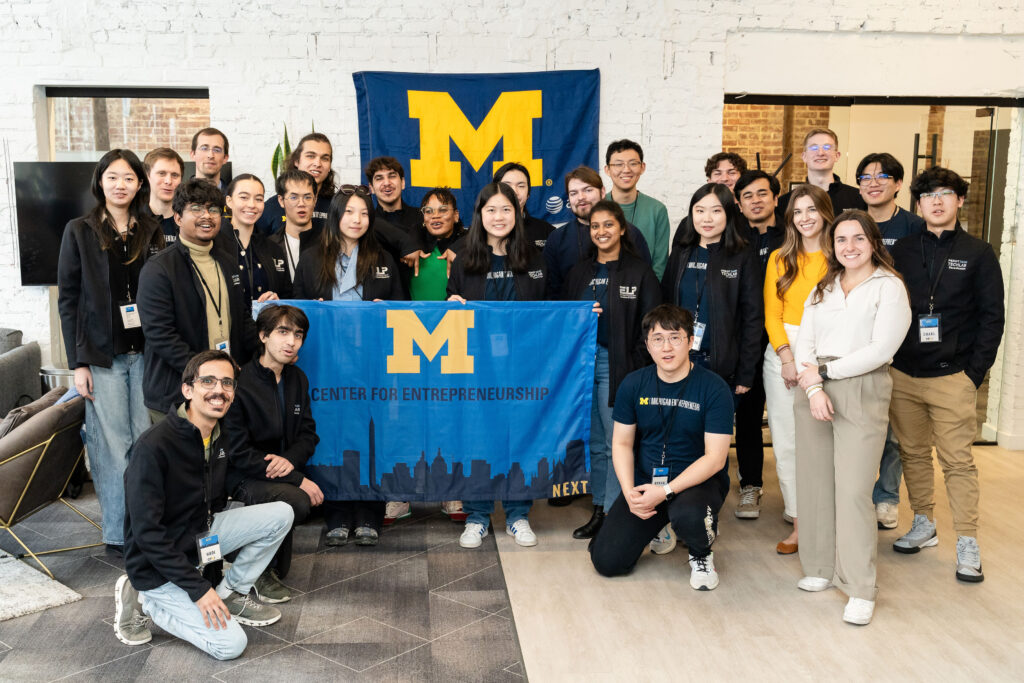Written by Nick Moroz, Director of Entrepreneurial Practice at the Center for Entrepreneurship
intro
As part of the Entrepreneurial Leadership Program (ELP) and Perot Jain TechLab series of programs, student participants have the opportunity to join excursions to startup ecosystems across the country. The Northeast Entrepreneurship Startup Trek (NEXT trek) to Washington D.C., this spring break, took 25 students on a whirlwind tour of our nation’s capital and the entrepreneurial activity so intertwined with the public sector.
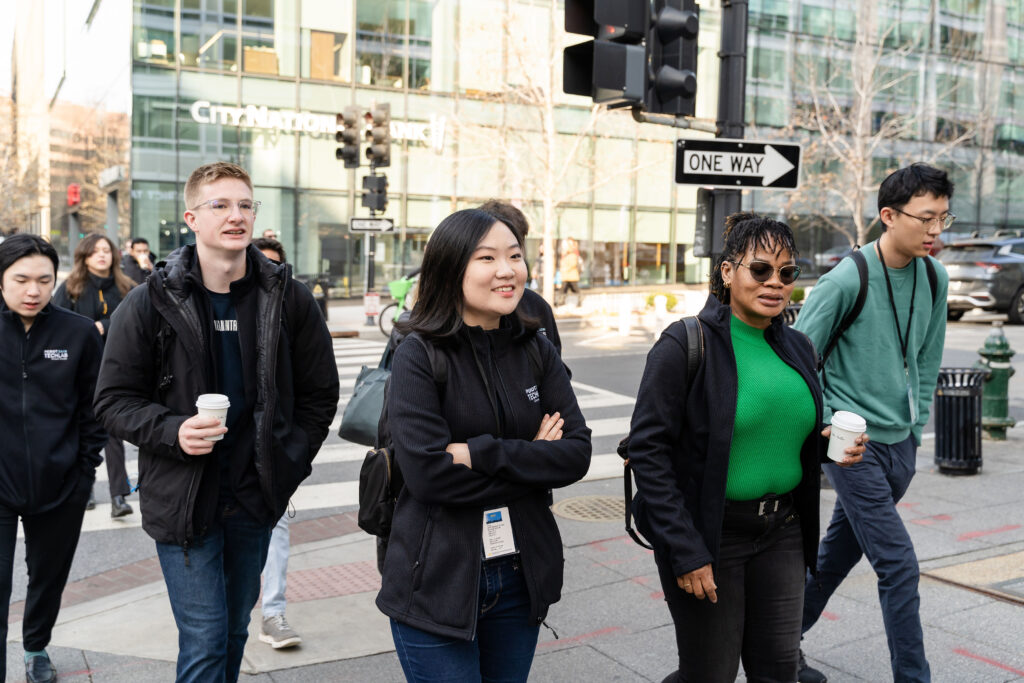
Day One
Students first met with U-M alum Donna Harris (MBA Strategy and Entrepreneurship, ’00) founder of Builders and Backers, a pioneer in finding and funding entrepreneurial ideas, offering empowering resources and support for early-stage founders to scale. Donna, a pioneering entrepreneur herself, founded the former 1776 accelerator that was critical to sparking growth for the modern D.C. startup scene. She shared an important and intriguing message about the power of entrepreneurship to fortify democracy (the perfect topic to kick off our trek).
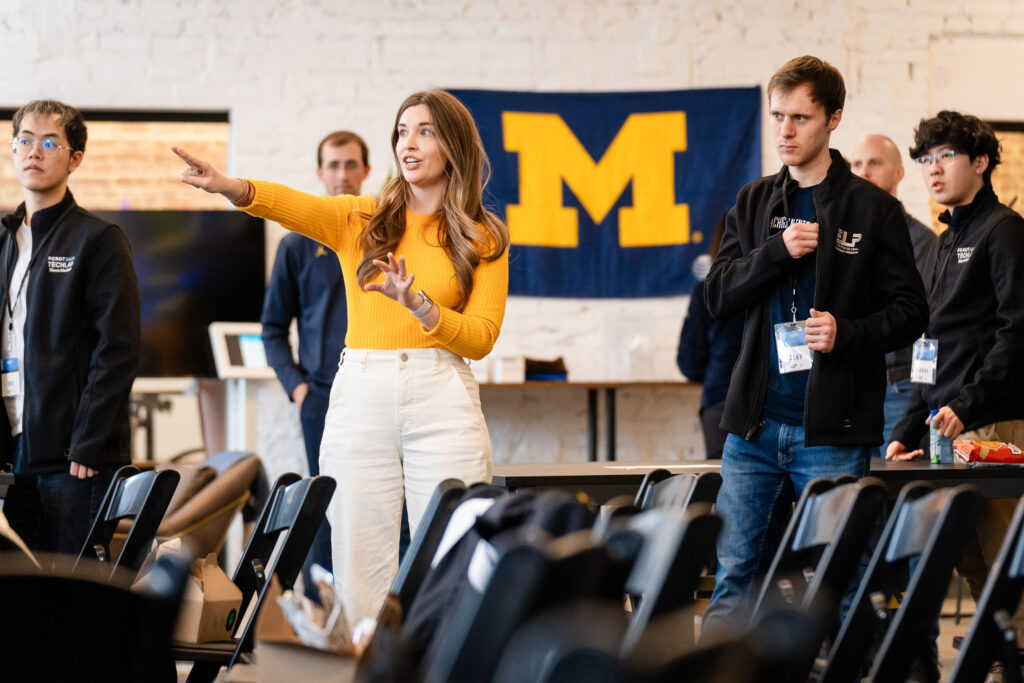
At lunchtime, the students visited micro-nuclear power plant startup Last Energy. The company, led in part by alumni Michelle Brechtelsbauer (MPP, ’16), Karen Torrent (MPP, ’99), Madeline Hibbs-Magruder (Political Science, ’18), Jonathan Kauffman (BS Biopsychology, Cognition, Neuroscience), and Erik Walker (NERS, ’12), was founded by Bret Kugelmass after a multi-year podcast and customer discovery search to identify a problem-solution fit that would meaningfully impact climate change. On-site small-scale nuclear power plants were the answer that he and his team arrived at in a diligent fashion, and have secured more than $30bn in contracts for their European deployments. The students engaged in an innovation challenge in which they utilized everyday items like cardboard, cloth, and styrofoam to prevent an egg dropped from a sizable height from cracking, emulating the design teamwork needed by Last Energy’s team to produce the power plants.
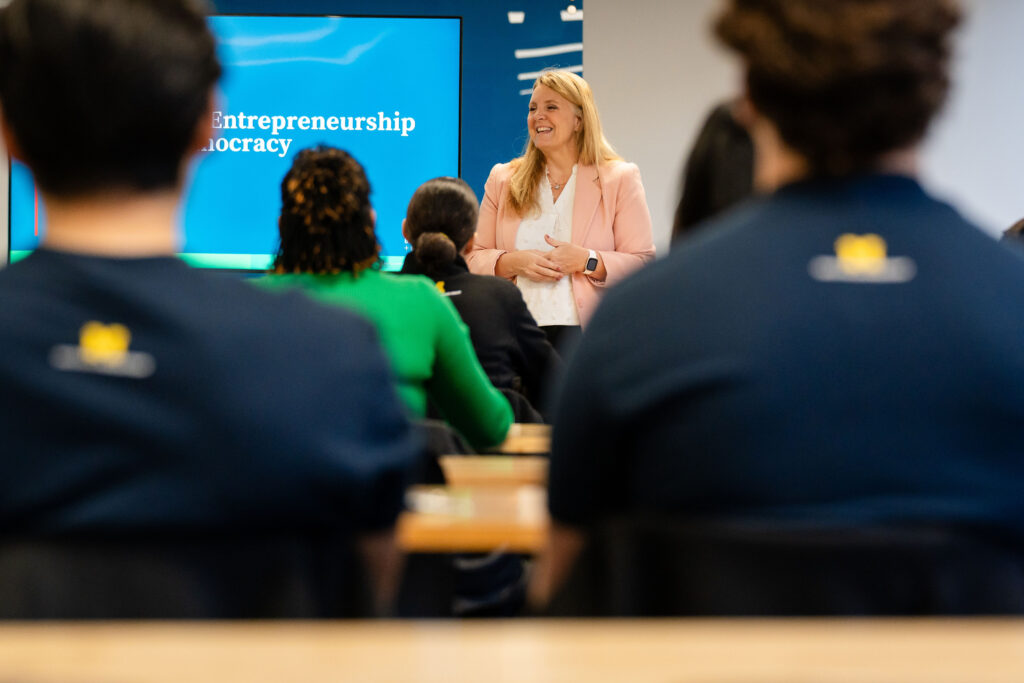
The students and staff then traveled to Throne Labs, an early-stage startup that is leveraging IoT connectivity and design thinking to reinvent the public restroom experience. Hosted by CEO and Founder Fletcher Wilson, the students received a behind-the-scenes look at how the ~35-person company has developed a full-stack approach to a stand-alone public bathroom that uses QR codes for entry, a novel accountability system similar to ridesharing apps, and local maintenance teams. The company is planning to launch 10 Thrones in Ann Arbor starting this June, and the students on the trek had the opportunity to pitch marketing ideas to Fletcher and the Throne team.
The day ended with a lively networking session with alumni over dinner. Students had the opportunity to connect with ten U-M alumni focused on a variety of industries (including several who developed their entrepreneurial mindsets while working with the federal government).
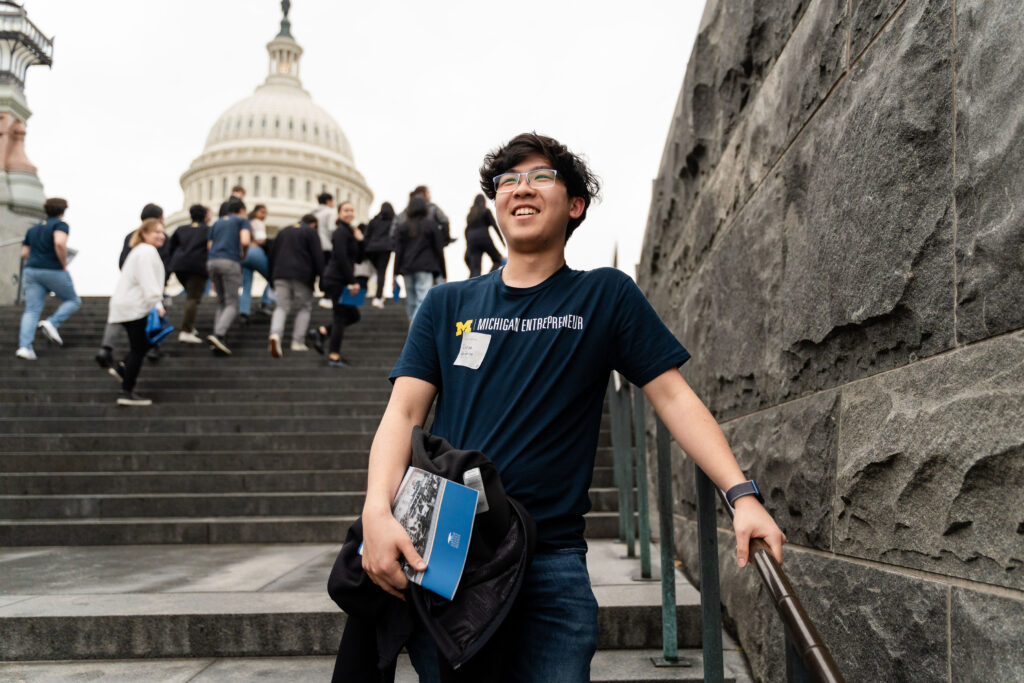
Day Two
The students kicked off another eventful day with a stop at the CIA’s venture capital offshoot, In-Q-Tel, an allusion to the fictional head of research and development for MI6 and James Bond counterpart. The students heard from investors and scientists about how the non-profit connects technological advances at startups to national interest. Over their 20+ year history, they’ve been at the forefront of many industries. They are also unique in that their lab can help develop innovation in concert with private startups.
The group then visited George Mason University’s new Living Cyber Innovation Lab. Hosted by Associate Vice President for Innovation & Economic Development Paula Sorrell, who previously served as a director at U-M’s Economic Growth Institute and a CFE lecturer. Students engaged in a thought-provoking innovation challenge with Entrepreneur in Residence Farhad Chowdhury and Anwar Kibria, cybersecurity expert, where they brainstormed means to utilize generative AI to verify logins with two-factor authentication.
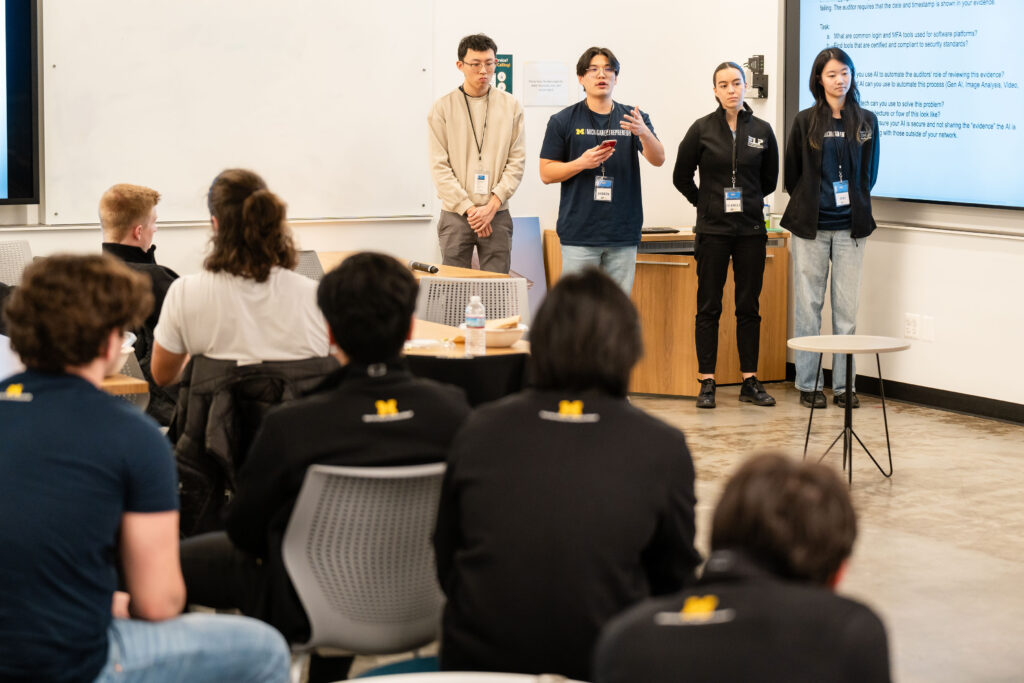
The day’s third site visit took students to the U.S. Capitol Building for a tour hosted by Congresswoman Debbie Dingell’s staff. The students were wowed by the grandness of the building and the history of the site. The tour also reminded the group of the connectivity of the burgeoning private sector and established public sector which makes Washington D.C. unique.
Our second day wrapped with a reception featuring another ten diverse alumni, sharing their insights and experiences with our next-gen entrepreneurs.
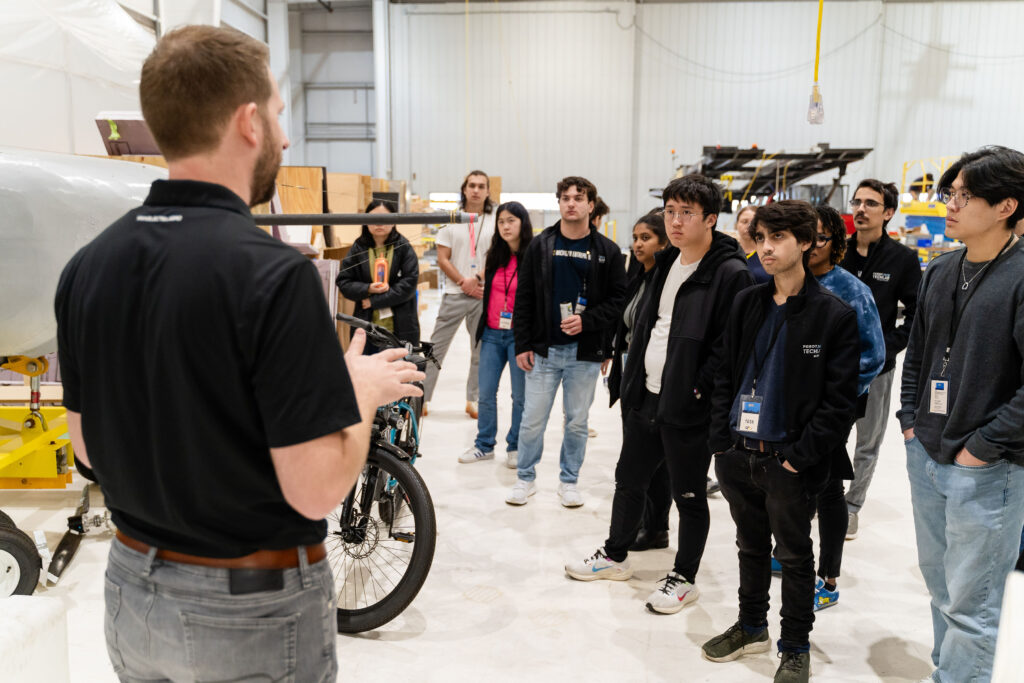
Day Three
To conclude the trek, we visited Electra Aero, a rapidly growing startup creating a new aircraft designed for sustainability that harnesses electric motors and a small jet turbine for a hybrid powertrain. Ben Marchionna (BSE Aero. ’11), Electra Aero’s Director of Technology & Business Development, showcased the evolution of the craft, a true marvel of engineering, and detailed the compelling business model for the plane to disrupt the helicopter market.
It was a thrilling end to the trek that provided students with a view into the future of where tech-driven startups connect with government and the leaders, many of them alumni, that are driving these innovations.
Want to see more photos from the trek? View the photo gallery here.

